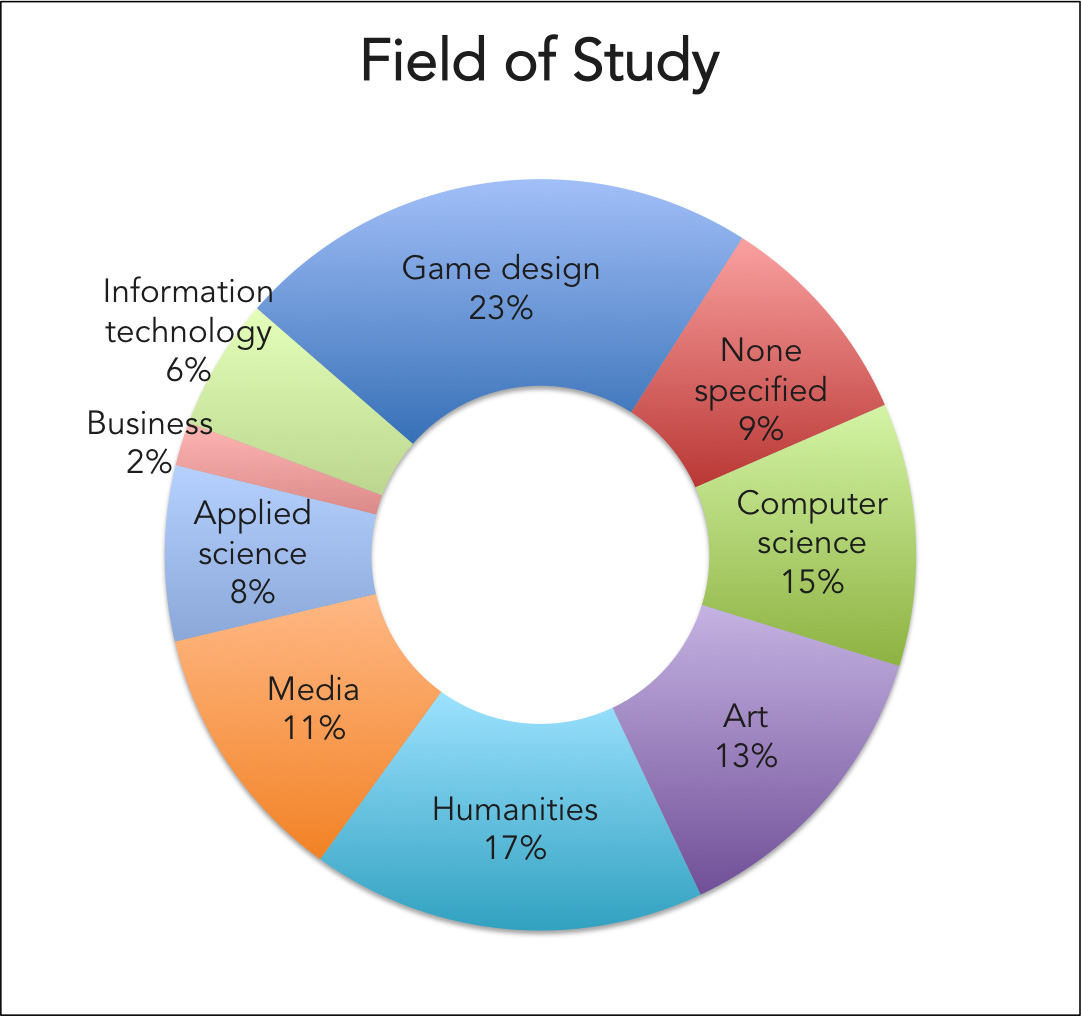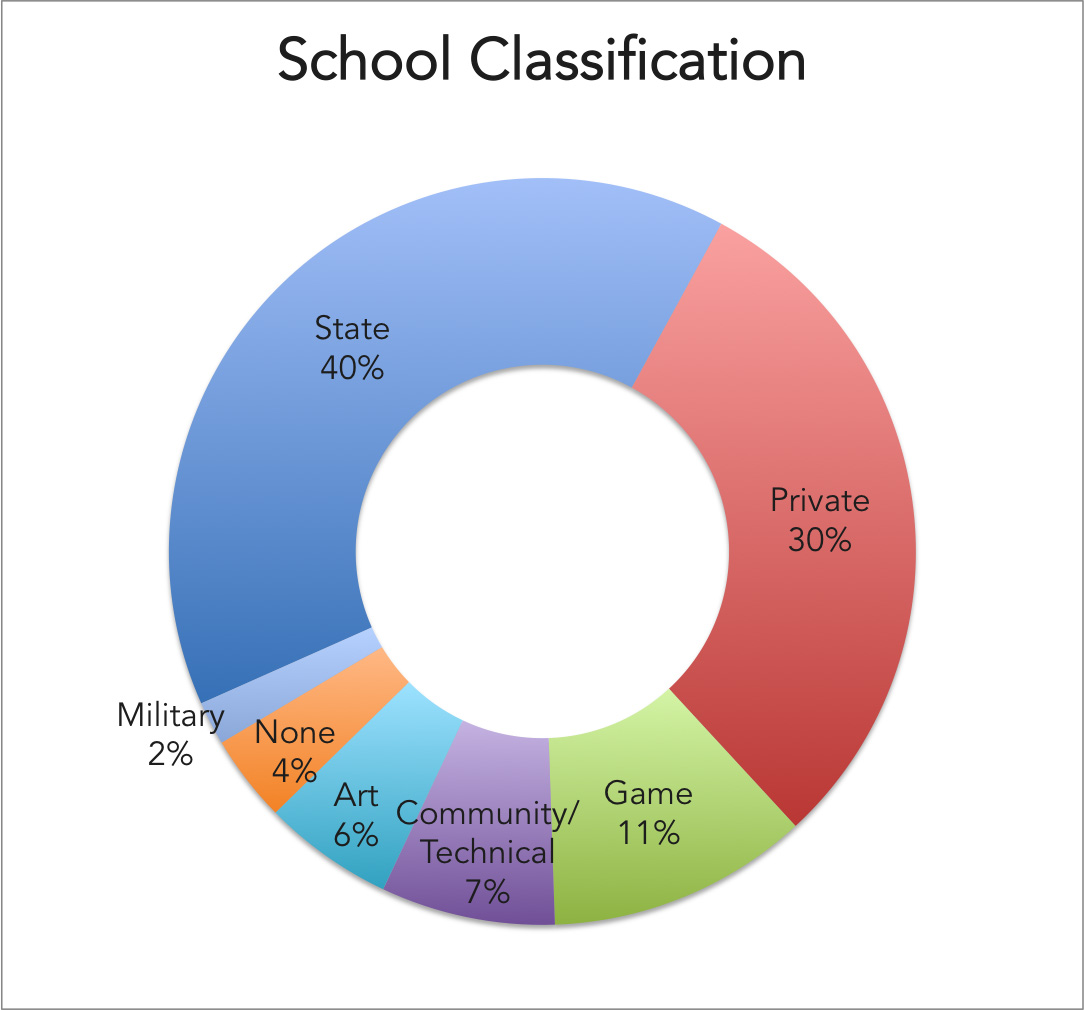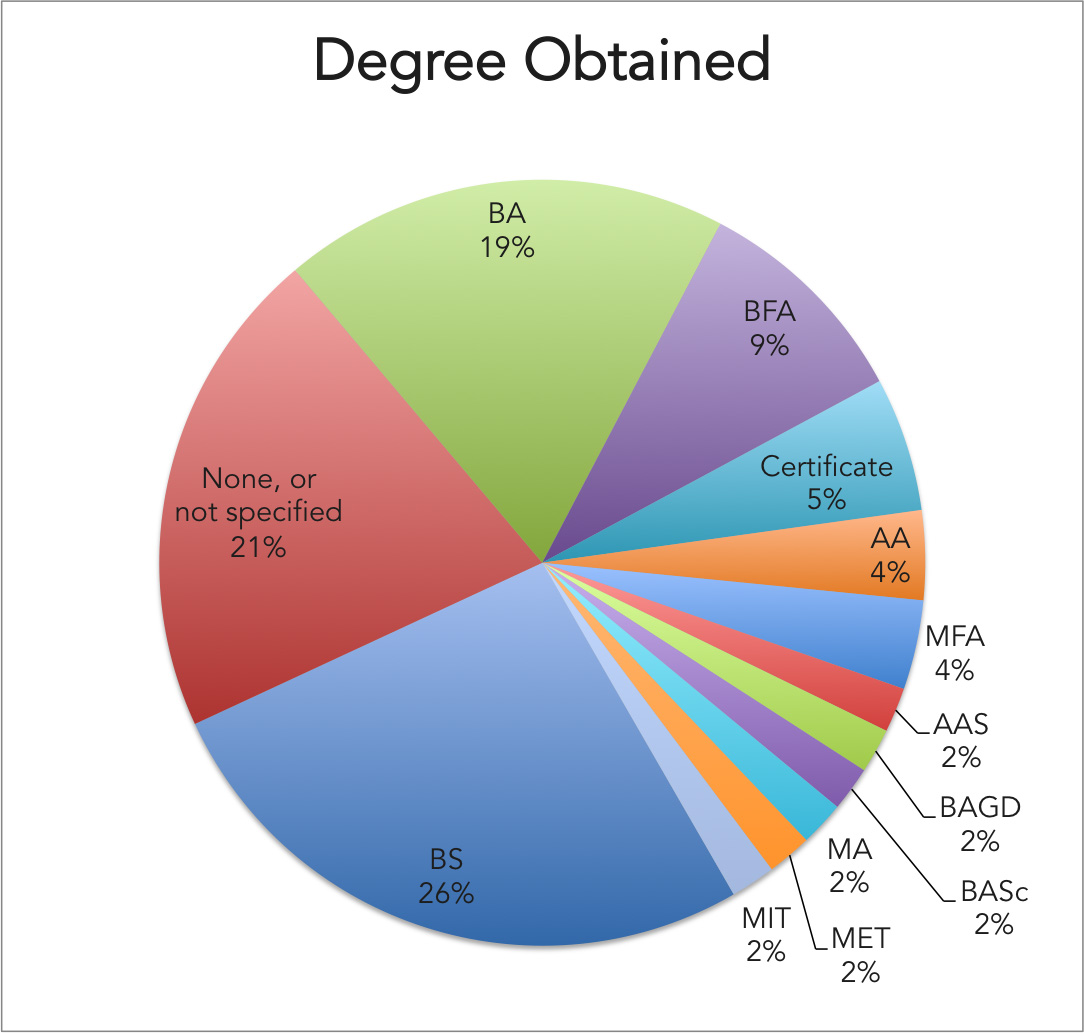what education is needed to become a game designer

Is your quest to become a video game designer? If so, you might feel that you're facing a difficult journey with many decisions to make. Should you go to a video game college, state college or private university? Should you focus on programming, design, or art? Is a 4-year degree enough or is more required of you?
There are many roads to take, and many educational paths to choose. Which one leads to your dream job making games?
Game designer degree requirements
Game design draws from several disciplines, so naturally there are several paths you could take. Software engineering, art, the humanities – each is its own road, and each could lead to a job as a game designer.
To show you how many educational paths could all lead to a game design job, I searched through the LinkedIn profiles of every game designer I've worked with over the years – 53 in all, in many salary ranges. I surveyed where they went to school, what degrees they graduated with (if any), and what types of colleges or universities they attended.
The results are summarized in the charts below. They show that there's more than one way to become a game designer – but some career paths may be better than others. Let's take a look.
Fields of study for game design
This chart summarizes the various fields of post-secondary study (college/university) that the 53 game designers in my survey listed on their LinkedIn profiles. The fields of study are grouped as follows:
- Game Design (23%): Game design, level design, digital game development
- Computer Science (15%): Computer science and simulation
- Humanities (17%): English, Asian studies, Literature, Linguistics, Economics, etc.
- Art (13%): Computer animation, Fine art, Illustration, etc.
- Media (11%): Electronic media arts, Radio/television/film, video, etc.
- Applied Science (8%): Engineering, Electronics, and Applied Science etc.
- Information Technology (6%): Management information systems, computing and software systems, and other IT
- Business (2%): Business marketing
- None specified (9%): Some of the LinkedIn profiles did not specify a field of study, possibly these designers did not attend a post-secondary school

Note that less than one quarter of game designers actually went to school for game design. I was surprised to find that about as many designers got a computer science degree as got an art degree, since game design is often made out to be more of an art than a science, and that only 9% of game designers did not attend any college or university.
It's interesting how many designers come from a background in the humanities. In fact, three of the designers in my survey studied Japanese or East Asian Studies. There were also several designers that studied Media – they didn't focus on video games, but on disciplines that influence games such as television and film.
Types of game design schools
This second chart breaks down the type of post-secondary schools that were attended by the 53 designers in this report. To offer the best view of the data for readers who are trying to decide what type of college or university to attend, I've broken it down into these categories:
- State (40%): State-run universities including the University of Washington, Rutgers, and others
- Private (30%): Privately-run universities including Carnegie Mellon University, Southern Methodist University and others
- Game (11%): Specialized game universities such as DigiPen Institute of Technology
- Community/Technical (7%): 2-year degree schools including community colleges and technical colleges
- Art (6%): Art specialty colleges including Savannah College of Art and Design, and others
- Military (2%): United States Army Intelligence School
- None (4%): No post-secondary school was listed

The most interesting thing about this chart might be that only 11% of the designers attended a "game" school, even though 23% studied game design according to the Field of Study chart. That means that the remaining 12% that studied game design, attended a non-game school. Maybe more designers will come from game schools as institutions like DigiPen and Full Sail expand in popularity, but for now it seems that a standard college or university is still a good way to get into the game industry.
Game design degree requirements
The third chart shows the various degrees that the 53 game designers graduated with, if any. Most of these degrees are well known, but I've listed them here to save you the hassle of looking up some of the more obscure abbreviations. Note that Associate's degrees are typically 2-year degrees, Bachelor's typically require 4 years, and Masters often require 6 or more years of study.
- BS (26%): Bachelor of Science
- None or Not specified (21%): Many designers did not list a degree on their profile
- BA (19%): Bachelor of Arts
- BFA (9%): Bachelor of Fine Arts
- Certificate (5%): Non-degree certificates such as Certificate in Game Level Design
- AA (4%): Associate of Arts
- MFA (4%): Master of Fine Arts
- AAS (2%): Associate of Applied Arts
- BAGD (2%): Bachelor of Arts in Game Design
- BASc (2%): Bachelor of Applied Science
- MA (2%): Master of Arts
- MET (2%): Master of Entertainment Technology
- MIT (2%): Master of Information Technology

The first surprise in this chart is that 21% of designers (about 1 in 5) likely did not obtain a college degree. It's hard to know for sure, because if they didn't list a degree on their LinkedIn profile it doesn't necessarily mean that they didn't graduate. But all of the profiles I examined were otherwise complete, so if they didn't list a degree then it's likely they didn't obtain one.
You might also notice that, while a large number of designers had a degree in science, there's also a wide variety of art-related degrees. Whether it's fine art, applied art, or game art, it's clear that an art degree is also a useful tool for getting a job in game design.
Many educational paths available
If there's one thing these charts illustrate clearly, it's that there are many paths that can lead you to your goal of becoming a video game designer. What does this mean?
One thing it likely shows is that getting a degree from a college or university is an important step toward your career in games. While 1 in 5 designers in this survey did not complete their degree, note that all but 9% of them attended at least some college. These numbers show that if you don't go to college, it will be difficult to get a job designing games.
But maybe it also hints that you shouldn't stress out too much about making the "wrong decision" about which school to choose or which degree to pursue. Maybe it's more important to study a field that you're passionate about, since game designers come from many different backgrounds.
Besides, isn't passion what made you set out on this quest in the first place? Pick a path, follow it passionately, and you'll eventually reach your goal – by one path or another.
Search for game design schools
If you're thinking about a career in game design, it's never too soon to start gathering information. Enter your zip below to check out the top design schools near you. The info is free, so it's a great place to start.
Read my new book!
Making games for a living is an incredibly rewarding career, but it's hard to break in unless you have insider knowledge. This book levels the playing field.
READ: Start Your Video Game Career

what education is needed to become a game designer
Source: https://www.gameindustrycareerguide.com/game-designer-education-requirements/
Posted by: floresamingin.blogspot.com

0 Response to "what education is needed to become a game designer"
Post a Comment